After reading Hunt, Gather, Parent by Michaeleen Doucleff, I immediately changed the entire way I view my children and how I regard myself as a parent.
The Parenting Book That Actually Changed How I Parent
Disclaimer: I’m not a licensed therapist, and I have no accreditation in the field of parenting. I’m just a mother of 4 kids who read a book that I find helpful for my own family and I’m sharing what I learned and why it works for us in this blog post.
As parents, we’re constantly evolving to our children’s developmental stages. Just as much as we change as individuals, so do our children. I feel like every few months, we’re in some sort of developmental change, and I used to find myself floundering, trying to adapt to this sudden shift in behavior and coping capabilities. What I realized is that I didn’t have a consistent parenting philosophy so every time my child changed, I’d try to simply deal with that change in a whole different way. Not good.
But that’s just because I couldn’t find a parenting philosophy that worked for myself and my family. I find it hard to digest a lot of these parenting Instagram accounts, because it seems like a “one size fits all” mentality.
There’s also a lot of pressure on certain “scripts” and this overbearing feeling that if you don’t respond to a child’s “bad” behavior in a certain way, they’ll be scarred for life and requires years of therapy for undoing. So much pressure is being put on parents (and more-so mothers) these days, it’s pretty traumatic.
I’ve tried gentle parenting. I’ve tried a stricter style of parenting. I’ve tried more of a “free range” style of parenting. In the end, I find myself flustered, screaming, breaking down, exhausted, and all of the above. And most importantly, I froze in the moment, almost paralyzed in self-doubt. What method or line should I use here?! It’s debilitating. And my children’s behavior wasn’t changing much at all.
Now, I do feel like there are certain parenting tips that I’ve picked up over the years that have actually helped me as a mother of four very unique, boisterous, messy, strong-willed children. And I’m still holding true to those. Some of those include:
- Treat others as you’d like to be treated.
- Model the behavior you want your children to have. This is a big one for me, and I was doing it all wrong. It’s not all about saying please and thank yous in front of your kids. It’s modeling the small interactions and modeling the conflict/resolution interactions especially. For example, if my husband asks me for a bite of my sandwich and I’m like, “No! It’s mine, I’m hungry!” then why would I think my kids would share? You have to always think, “What behavior would I want my kid to exhibit?” It’s so tough to do, but once you let it click in, you become a better person anyway so it’s a win-win!
- Never succumb to a power struggle. You’re in charge as the parent, you decide to power struggle or not. Both are your decisions and you are in control of which way it’s going to go, so if you pick not to engage in power struggles, it’s not giving in… it’s acknowledging that your kids are kids and whatever you’ve “given in to” to avoid the power struggle can be used later on to encourage good behavior (for instance, when your child is asking to do something they love, you simply say, “Remember when I asked you to put your shoes on yourself and you wouldn’t? Well, I wish you had, because now I don’t have time to play that game with you, but if you had put your shoes on like I had asked, we would have time.”)
- Positive discipline is always a guiding principle, but with certain limits and nuances that I’ve set after reading Hunt, Gather, Parent.
Hunt, Gather Parent
Now the issue I realized I had with all of the parenting methods we see out there that I didn’t realize was the issue until I read Hunt, Gather, Parent? The children are positioned at the center of our worlds, almost on a pedestal. And nearly everywhere else in the literal world other than the USA, the child is not at the center but simply a PART of the world, just as adults are.
This book is all about taking a look into ancient cultures and seeing how they can teach us about raising happy, confident, helpful kids. The key word: helpful. The author submerses herself and her daughter in these cultures for months at a time to observe, learn, and understand why the children in these cultures are “better behaved,” more adjusted, helpful members of the family and community, don’t have overwhelming tantrums, and how there is little to no yelling in the household. Oh, and how the parents seem to actually enjoy their time when they’re out with their children and can actually have conversations with other adults.
Before I dive into what I got from the book, here are a few disclaimers I’ll make:
- These ancient cultures don’t have access to what we do in the USA, which makes it easier (in my opinion) to make the parenting choices that they do, purely based off of the lack of resources and access. The USA caters to children in a huge way and that’s part of the problem, but we live here, so it’s hard to ignore it completely.
- Furthermore to the first point, we live in the New York City metro area, where access is pretty much the highest it is in the country. There is everywhere within walking distance and between child-focused immersive experiences to immense pressures to be enrolled in extracurriculars from a young age, it’s certainly a high stakes place to live. Much different than a place like the Mayan villages where the author explores.
- A main reason these cultures are able to parent the way they do is because they have many generations living in communities and often households so there is a lot of help from family and friends always. If you don’t have that privilege (as I don’t), it makes it unattainable to achieve some of the parenting wins outlined in the book.
- I think you have to take the main themes of the book and adapt them to your own life in a reasonable way. For instance, living in the NYC area in 2023, I’m not going to have the expectations to lead a similar life to the Inuits in Alaska and thus be able to parent like they do. For example, when we go to a park in NYC in 2023, I can’t just stick my head in a book and let my kids play. There are predators in cities, the parks are massive, there are so many kids running around, so it’s not as simple and much more nuanced.
- Both the mother and father work in many households in our culture. It’s impossible to bring your child to work (as the author suggests sometimes) for many of us. Thus, we end up hiring nannies or putting our children into daycare when they’re not yet of school age and this unfortunately is another way we let children grow up at the center, with all this emphasis put on their success and entertainment.
To conclude, there are many principles and ideas in the book that just wouldn’t work for our family based on where we live and our society. However, there are ways to adapt those ideas to make them fit our family, which I am doing more of everyday and finding it helpful.
I love the introduction of the book, taking you through the reasons why Americans parent the way we do. It’s fascinating!
What I’ve done differently after reading Hunt, Gather, Parent
First off, read the book. I’d even recommend coming back to this blog post and re-reading it after you’ve read the book, because it’ll hit different. My jaw was practically dropping at every page turn. I just couldn’t believe what I was reading! I was desperate to try it out on my own kids.
Entertainment
This was biggest takeaway, so I’m going to start here. I think where I was failing most as a parent was misunderstanding entertainment and our (the parents’) role in providing that entertainment. So let me explain where I was at with this. Right before I read the book, I was literally buying toys on Fridays “in preparation” for the weekends. Nothing expensive or crazy, but maybe it’s a new coloring book, a water gun, a board game or a little $5 art kit.
Whatever it was, I was always thinking about my weekends not in, “What are Lu and I going to do this weekend?” but instead, I was thinking, “How are we going to entertain the kids all day?” I was either booking some immersive new experience that opened up in NYC or planning playdates or thinking about driving to an aquarium or zoo or something like that.
The author realizes through her travels that children just want to feel like an important member of the family/community and be heard. They actually inherently want to help. The author encourages you to welcome and accept the help. What the author realized is that the simple act of folding laundry, cleaning dishes, mopping floors, washing windows, cooking meals, and all other jobs that you have to do to keep the house and family running is what we should be having our children do as entertainment for two reasons: a) they want to genuinely help, and b) then you’re not doing these chores when the kids are napping or asleep, you get to enjoy your downtime too and your kids are actually helpful.
Eventually, the idea is that the children become aware of when chores need to be done and they do them without prompting. She advises one prompt an hour and not to overtask your kids. The beauty of this idea is that because your kids are spending so much time doing these chores with you that they view as entertainment, then you don’t have to get on the floor and play with Legos with them – you’ve already filled that cup for them and they’ll happily play with their toys without you. Now, if you genuinely enjoy playing Legos with them, that’s on you, but your child won’t yearn for your attention 24/7, because they get it when they’re helping you.
And let me note that this doesn’t mean we don’t do child-centered activities sometimes. I did limit the number of birthday parties I was going to this year (I had to put my foot down) and we still keep some activities that the kids love and thrive in (Luca’s soccer is something he loves and we love to watch him play) and we’ll go to events and places that are geared towards kids, but it’s never something we don’t think we’d enjoy also (I’m saying no to the trampoline park, for example.) We went to Disneyworld because I genuinely wanted to relive my childhood magic!
Here are some chores that I have the kids do that I wasn’t doing with them before:
- Setting the table for meals
- Cooking – see my note below on slowing down.
- Cleaning dishes and unloading/loading the dishwasher
- Cleaning the floors and windows
- Going to the grocery store with me
- Running errands – the post office, the dry cleaners, the pharmacy, wherever and whatever
- Folding clothes (they actually help me with my own laundry, because their nanny does theirs)
- Raking leaves in the backyard
- Helping unload groceries and put them away
- Taking things out of their backpack after school/camp and putting things in the garbage/laundry/lunchboxes in the sink
- Making snacks for the twins (the twins have a morning and afternoon snack, so Luca will often prepare it)
It literally works instantly. And most importantly, when my kids don’t want to help, I don’t force them. However, if it’s a moment that I really need them to do something to help and they’re unwilling, I use the trick that the author gives. Later in the day, when my kid wants to do something (for example, they want to come to the grocery store with me,) I remind them of the moment earlier when they didn’t help me when I needed it. I say, “If you want to come to the grocery store next time, you’ll need to help me when I really need it.”
The author segments things into two categories: big kid things and baby things. She says, “Going to the grocery store is for big kids. You didn’t show me that you are a big kid earlier when I asked you to wipe up that spilt milk. You won’t be going to the store and will be staying home with Daddy and the babies.” It’s not shaming them, because you don’t do it in the moment it happens. You teach them a lesson later, after you’ve already cleaned up the mess yourself. None of the shaming and threats like, “You better clean that up right now or you’re not coming to the grocery store with me later!” That’s shaming and threatening.
Slowing down
Now, I know what you’re going to say next (because I said it while reading this book.) “But cooking is my time to myself, I don’t want to make a bigger mess and take double the time, I just want to cook and move on, I don’t have all that time!” So like anything, it’s going to cause you some extra time in the beginning. However, if you slow down your life so that you have time for this very important work with your kids, it’s worth it. Or, perhaps you prep certain things with the kids on the weekends when you have more downtime so that during the week, when you’re pinched for time, things are easier and quicker.
To make this time and slow down, the author recommends taking a look at all that you do in a week and anything that is 100% child-centered, cut it from your schedule. Now, that’s easier said than done, because if your child genuinely loves gymnastics and is competitive in gymnastics, you’re not going to cut it. It’s easier to do when your kids are very young (like 2-5, which is the age range my kids are in and hers and that’s who the book is geared towards) because there are very few activities that a 2 or 3 year old is doing that is necessary.
For Roma and Luca, they were signed up for an activity every single day after school. Basketball, sports class, art school, soccer, you name it, they were signed up. It was stressful carting them from school to classes (sometimes we’d have to drive!) and I always felt like I’d come home and be so exhausted from the 2 hours with them (where I wasn’t really spending quality time with them) and then I’d tell them to watch TV or play while I cooked dinner. When they’d ask to help, I’d say no immediately because I only had 30 to 45 minutes to make dinner before the twins came home with the nanny for mealtime. It was awful!
I literally cut every single activity. And you know what the kids said? NOTHING! They were so happy to just be with me. We’d run all of my errands (I’d save them for after school which was nice because I got to spend my day doing work or things that filled my cup, not running around doing errands in preparation of entertaining them after school.) After my errands, we’d come back and from A to Z, we’d make dinner. Sometimes Roma would get bored and I’d say, “You can go play honey, come back when you want to help again.” Maybe if she wasn’t in a helpful mood, I’d prompt her by saying, “Roma, come cut the cucumbers for the salad tonight, I set you up with your own cutting board.” And she’d run over and help.
The more you let your kids cook with you or do certain chores with you, the easier it gets for you and for them. You may already be baking with your kids – they get better and better at pouring those dry and wet ingredients into the bowl and spill less and less. There’s a big adjustment stage but once they’ve got it down, it’s really nice to have help in the kitchen and you won’t dread it.
To start, the author recommends (based on what the ancient cultures do) starting small. Maybe your younger child gets all of the ingredients out of the fridge and pantry for you. Then you thank them for the help, offer them to watch you, and just let them know that once they’ve watched you a few times and learn how to do it, they can try. And you keep leveling up, giving them more and more tasks so they feel like they’re learning alongside you. For me, I’d let Luca pour the ingredients into the hot pan. Then, a week later, he started stirring. And now, he’ll pour and stir.
The kids feel like they’re contributing to the family so it gives them confidence, validation, and again, you’re spending a lot of quality time with them WHILE you’re teaching them valuable life skills. It was ground breaking for me.
The book encourages you to be “together” with your kids and do things that the adults actually enjoy and bring the kids along. For example, if you like hiking, bring your kids hiking. If you like music, bring your kids to a concert. If you love dining out, bring your kids out to dinners. If you constantly bring your kids to experience what you love experiencing, they’ll grow to love it and then when you do things together, you’re truly enjoying it together and your weekends and free time aren’t focused on doing kid activities (which tend to overstimulate them anyway!)
Talking and praising less
I recorded how many times I said good job during a “play session” with the twins one day after reading this book and it was embarrassing. Hunt, Gather, Parent talks a lot about how we demand too much attention from kids and in return, they demand it back.
Another principle I love in this book is that the author encourages you not to over talk! What I mean by this is that the more you talk to a child during a misbehaving situation, the more they continue to misbehave. If you’re engaging with them, they’ll continue to engage with you. However, if you simply let them know the boundary and then walk away, the conversation has ended.
This goes along with praise. Now, I’m a lover and I love my kids so much and I’m constantly impressed by all that they do, and I just want to scream “good job!” just when they breath because every moment is a gift. However, “good job” is kind of an empty expression because we over use it. Instead of saying good job, these ancient cultures “acknowledge.” In few words, they acknowledge when children do things well or help.
This is all the validation kids want – they want to be part of something! For example, when one of the twins puts something in the garbage for me that’s across the room (that I didn’t ask them to do!) I walk over to them and say “Thank you for picking up the garbage!” not “Good job!” With the older kids, I may say something like, “That’s very helpful, you saved mommy some time.” The author encourages you to give your kids a sense of competency, autonomy, and thus connectedness to the family. That’s all connected to being a big kid, so I’ll often say, “That’s a big kid thing to do!”
Furthermore, I learned to be more quiet after reading this book. When I speak to them, I don’t raise my voice as much anymore. I keep everything at a lower tone. There have been a few times when I literally want to pull my hair out, but I think of this book and the chapter on the Inuits and I take a deep breath and imagine myself somewhere peaceful and I don’t yell. I keep it calm, cool, and collected which helps deescalate. To the author’s point, when you yell at children, they stop listening.
As the author says, “Fewer words create less resistance” and less stress!
Handling bad behavior
Probably the most powerful part of the book is when the author says to “expect children to misbehave.” It was like the guilt was instantly released. We’re so focused on controlling bad behavior, we forget that some of it is totally normal and that’s the stuff we use as teaching moments. On page 155, she says that in the US, “we overestimate children’s emotional abilities” and “we expect children at a very young age” to understand “sophisticated emotional concepts such as respect, generosity, and self-control.” That let me breath a bit.
Now, when the kids act up, there aren’t punishments.
I start by explaining to the child why I need them to behave a certain way or do something they’re acting unwilling to do. There’s no validating of feelings like, “I know you’re tired…” it’s, “Mommy has a lot to do before everyone comes over for our party, if you don’t help me clean up your toys, I won’t be ready in time and so I need your help.” I’ll throw in a, “You’re an important part of the family, I need you to help more.” That always gets them going.
I find that it’s hard for me NOT to threaten. I think I’m just hard wired to threaten (it’s been engrained in me) and so when I feel that urge coming in, I’ll now instead threaten what the author calls “natural consequences.” So if there’s still refusing to help clean up to help me get ready, I’ll say, “If you don’t clean up your toys, someone may trip and get hurt and then we have to end the party.” The old me would say, “If you don’t clean up your toys, you’re not getting any cake at the party!”
Sometimes, I will say things in the moment like, “Do you want to be a baby or a big kid? A big kid knows it’s time to get up and pick up their toys.” They already know what it means to be a baby (babies don’t get to do big kid things) and so that usually works well.
So what do you do if they just don’t ever pick up the toys? I pick them up. Say no to the power struggle, because everyone loses. Later in the day, I’ll make sure to leverage that situation when my kid didn’t pick up their toys. If my kid asks me to help them do something at the party, I’ll say, “No, because you didn’t help pick up your toys earlier and now I don’t have time for that” and walk away. While they didn’t immediately correct the behavior, we’re building upon it and that’s what’s most important. You’re not trying to raise obedient little robots, you’re trying to raise helpful, connected little humans.
Other tips when children are misbehaving is to introduce touch (pick them up, hug them, etc), bring them outside (just get some fresh air!), ignore it completely (this is tough in certain situations like if you’re outside of the home,) or change the environment so that the behavior can’t exist in that other environment (maybe move a dangerous toy out of the way.) But you’ll have to read Hunt, Gather, Parent to get the full toolkit!
If everything is spiraling and I have no idea what to do with the bad behavior, I offer a responsibility. If Roma is screaming because she doesn’t want me to do her hair, I say, “Come help me organize your hair tie box and pick out a bow for your hair, it’s such a mess, I need help.” And yes, it may take an extra few minutes, but the tantrum ends immediately and I get help! A lot of the time, when they’re cranky, they just feel helpless and kind of useless, like they’re floundering and need help. Giving them a sense of value is usually that help they need.
I feel like we’re in a great place behaviorally with the kids, and I attribute a lot of that contentment with this book. It really gave me the perspective shift I needed and while I don’t stay 100% consistent with this mentality (because I’m human and I often regress to old tactics when I’m not connected myself), at least I know that when I center myself, I can be the kind of parent I want to be. I hope you find this post and this book helpful in your parenting journey.
Ask the author!
I have so many follow up questions myself, and I’m sure you do too after either reading this blog post or reading Hunt, Gather, Parent. This blog post barely touches the surface of the book, so I really encourage you to grab a copy and read it and then come back to this post and drop a question for Michaeleen in the comments. I’ll be writing a follow up Q&A style blog post, where she answers these questions for us! I can’t wait!


















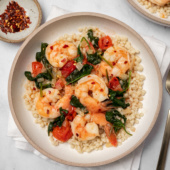


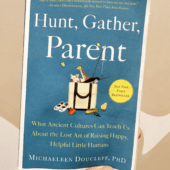
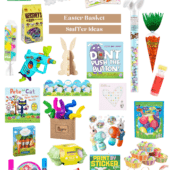
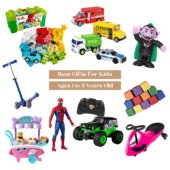







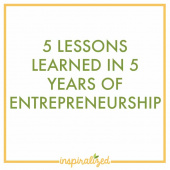
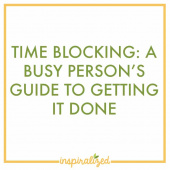
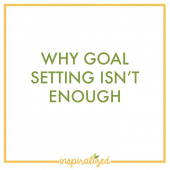










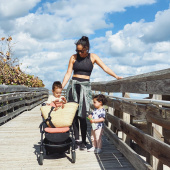

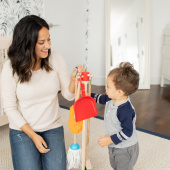
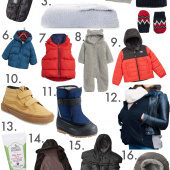
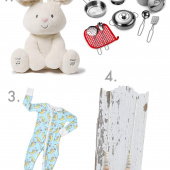
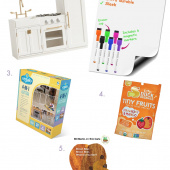


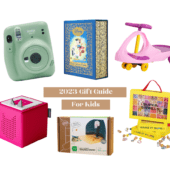

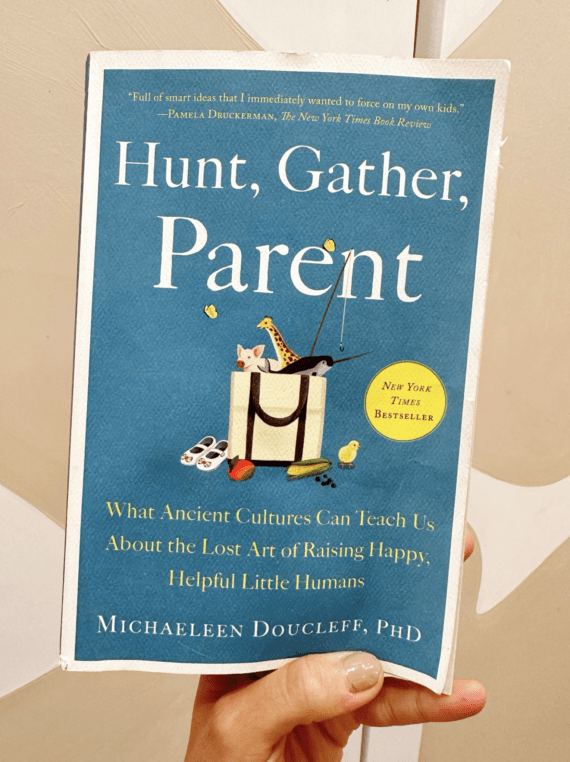
comments